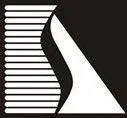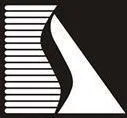
Can Chiropractic Care Help with Digestive Disorders?
Can you remember the last time you left home without a roll of antacids or a bottle of pills? Planning ahead is important if you never know when nausea, heartburn, diarrhea, gas, or other symptoms could ruin your day. If you're struggling to control your digestive disorder symptoms, a visit to the chiropractor may be just what you need to quiet your gastrointestinal system.
The Link Between Your Digestive and Nervous Systems
Your body relies on signals from the brain for many crucial body functions. The brain sends messages to your organs, cells, and tissues via nerves that branch out from the spinal cord. Nerve signals control blood flow, heart rate, and breathing. They also help you move your muscles, feel pain, smell a flower, and digest food.
Any interruption in the signals may affect your senses, your ability to move, or the way your body breaks down and uses the food you eat. Interruptions can happen if a nerve becomes damaged or compressed due to injuries, infections, tumors, or diseases, like diabetes, multiple sclerosis, or Parkinson's disease.
Nerve signals could also be affected if a subluxation presses on a nerve. Subluxations happen when one or more vertebrae become misaligned. A subluxation may also compress nerves by tightening nearby muscles and tissues.
If the subluxation affects a nerve that serves your digestive system, you may develop one or more of these uncomfortable symptoms:
- Upset Stomach
- Frequent Diarrhea or Constipation
- Nausea
- Heartburn
- Indigestion
- Gas
- Bloating
- Abdominal Cramps
Subluxations could worsen your symptoms if you have gastroesophageal reflux disorder (GERD), irritable bowel syndrome, Crohn's disease, or another digestive disorder.
Many things can cause subluxations, including:
- Falls
- Car Accidents
- Sports Injuries
- Poor Posture
- Poor Form When Exercising
- Improper Lifting Techniques
- Stress
Subluxations aren't the only problems that prevent signals from reaching your digestive system. Herniated or bulging discs in your spine can also interfere with nerve signals if the bulging part of the disc presses on a nerve.
Chiropractic Care Solutions for Digestive Disorders
Restoring the normal position of your vertebrae eases pressure on nerves, which may improve the way your digestive system works. Chiropractors often use spinal manipulation to realign your vertebrae. During spinal manipulation treatment, your chiropractor uses an activator or swift, hands-on thrusts to adjust the position of the vertebrae.
In addition to realigning the vertebrae, spinal manipulation relieves pressure on bulging discs. If you have a bulging disc, your chiropractor may also recommend flexion-distraction, a type of therapy performed on a table that moves as your chiropractor applies gentle pressure to your spine. Flexion distraction helps move the disc back between the vertebrae and may decrease spinal disc bulging.
Your chiropractic treatment plan might also include massage and other soft tissue treatments. These treatments relax tight tissues that compress nerves in addition to relieving pain. Does stress seem to make your digestive symptoms worse? Soft tissue treatments increase your body's production of endorphins and serotonin, hormones that relieve pain and act as natural stress relievers.
A narrative review of research studies published in the Journal of the Canadian Chiropractic Association examined the effects of chiropractic treatment on patients who suffered from dyspepsia (indigestion) due to GERD for at least two years. Spinal manipulation treatment and soft tissue therapy reduced the severity and frequency of their GERD symptoms.
You're not alone if you experience digestive problems. In fact, a survey of 71,000 Americans published in the American Journal of Gastroenterology revealed that 61% experience symptoms every week. Luckily, chiropractic care offers an excellent way to control and reduce your symptoms. Visiting your chiropractor may even help you reduce your reliance on antacids or medications. In addition to providing treatments, your chiropractor can offer nutritional advice, help you correct posture issues that may be worsening your symptoms, and recommend exercises that will prevent subluxations by strengthening the muscles that support your spine.
Ready to find out if chiropractic treatment could help you control your digestive symptoms? Give our office a call to schedule an appointment.
Sources:
The Journal of the Canadian Chiropractic Association: What Effect Does Chiropractic Treatment Have on Gastrointestinal GI Disorders: A Narrative Review of the Literature, 6/15
https://www.ncbi.nlm.nih.gov/pmc/articles/PMC4486990/
American Journal of Gastroenterology: Burden of Gastrointestinal Symptoms in the United States: Results of a Nationally Representative Survey of Over 71,000 Americans, 11/2018
https://www.ncbi.nlm.nih.gov/pmc/articles/PMC6453579/
StatPearls: Physiology, Gastrointestinal Nervous Control, 9/26/2022
https://www.ncbi.nlm.nih.gov/books/NBK545268
American Chiropractic Association: What Is Chiropractic?

